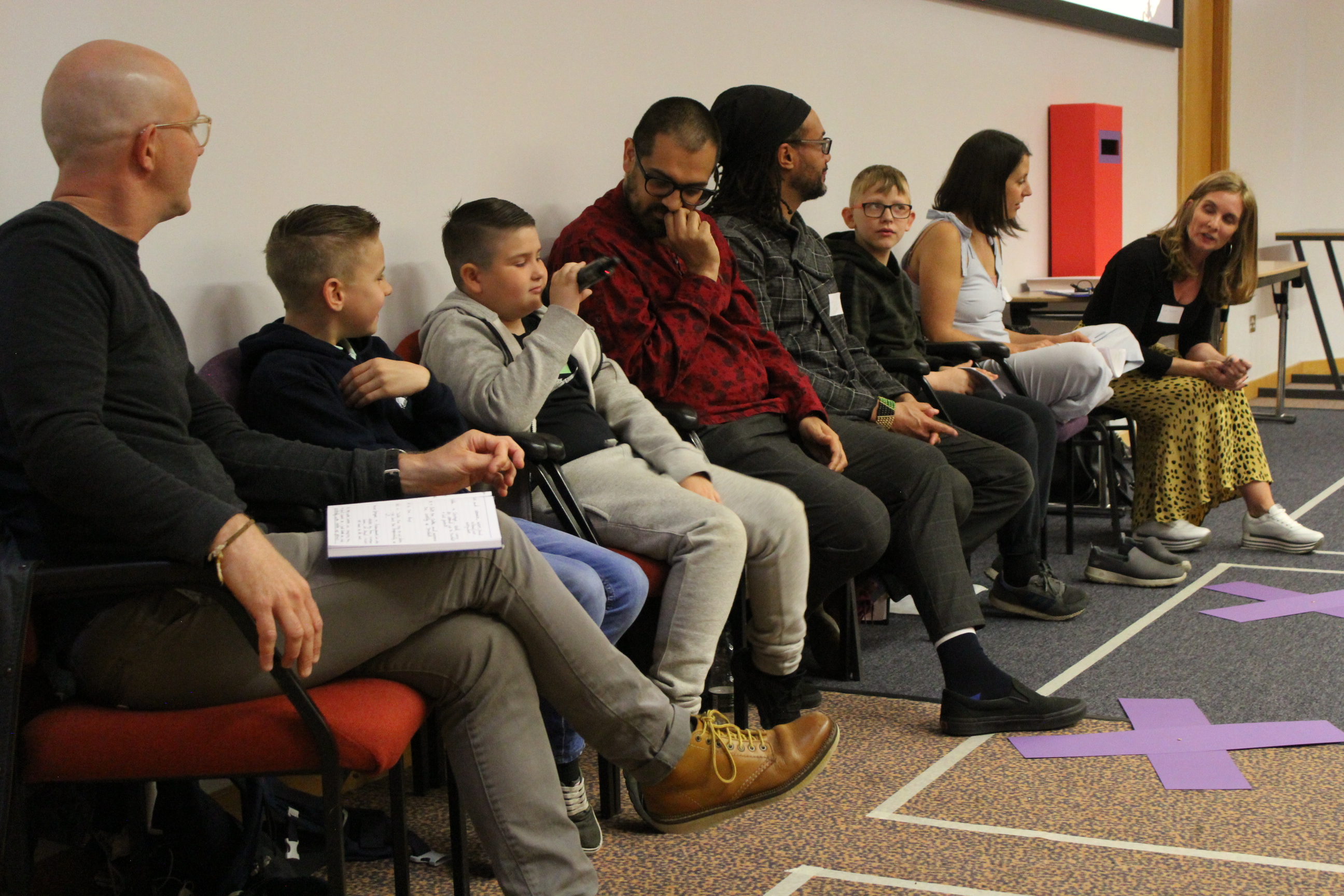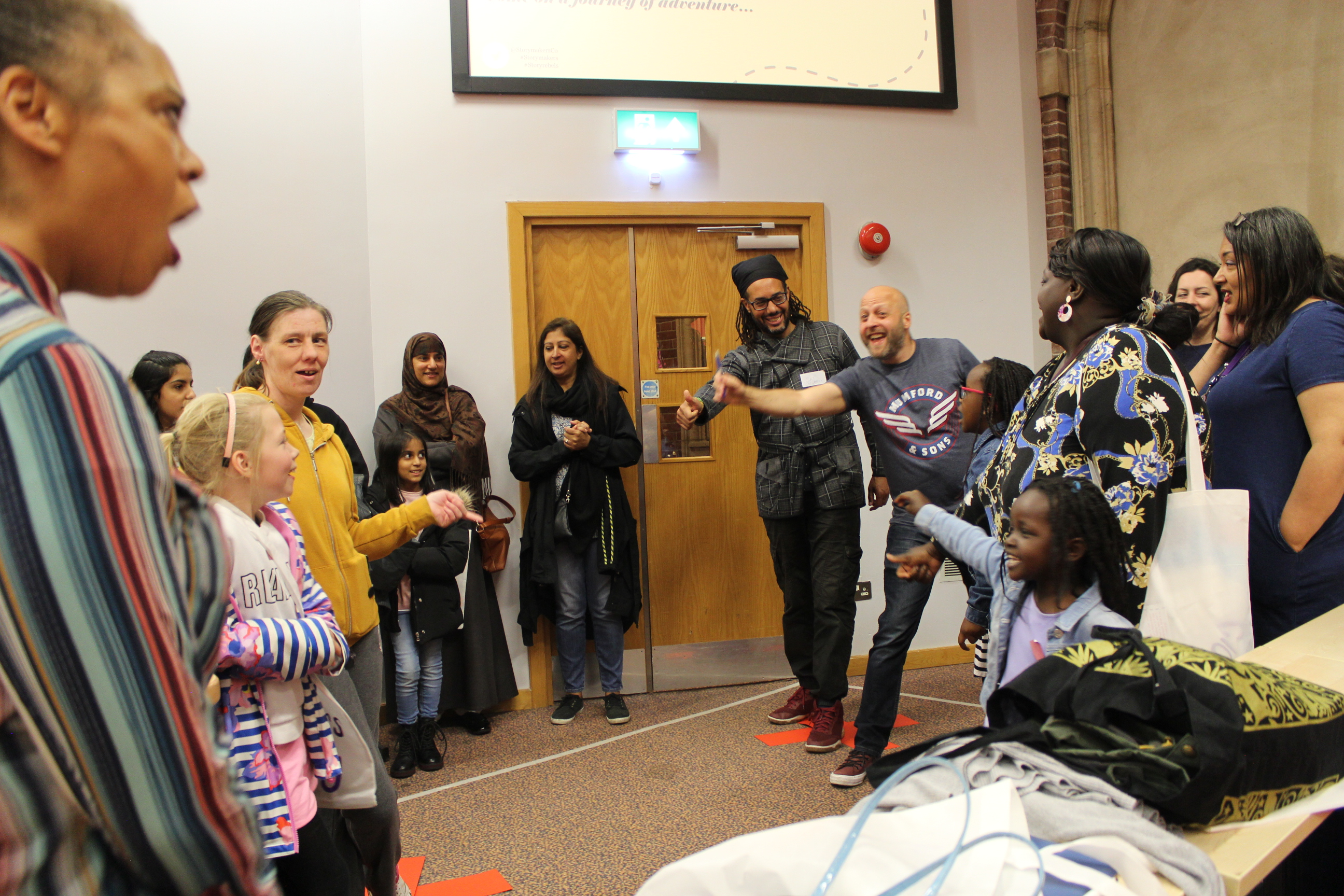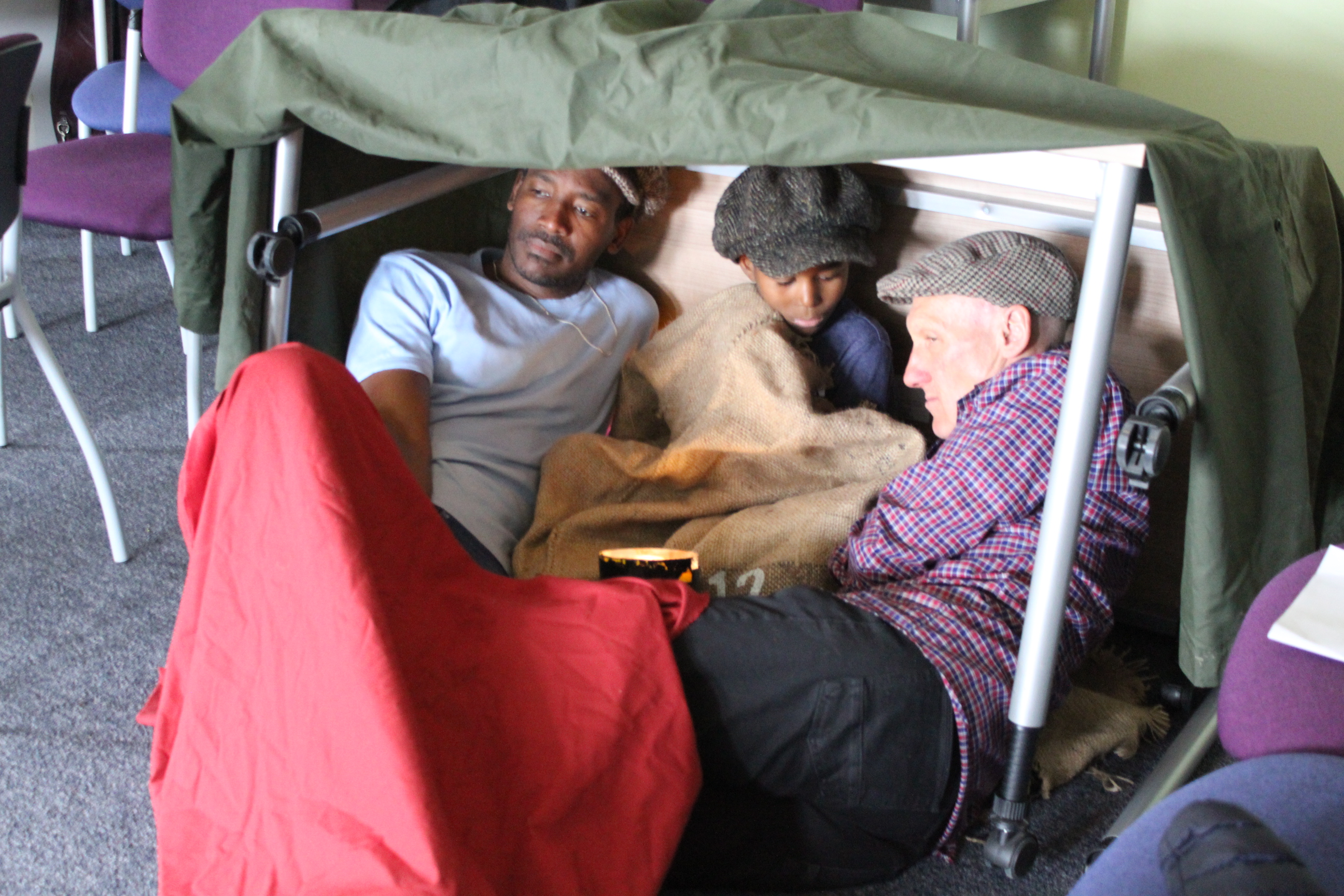Leeds Beckett University - City Campus,
Woodhouse Lane,
LS1 3HE
Story Makers Festival: A critical response to the imagination gap felt by children
Collectively reimagining the ways in which we can live together and share this planet is more pressing than ever!

Children's main concerns include their future and their relationships (Barnes, 2011). At Story Makers we co-create stories with children, valuing the potentiality which children’s critical and creative thinking brings to our understanding of the world. Our empirical research-based practices focus on creating spaces for underrepresented children’s voices through story and we craft collaboratively through aspirational drama and creative writing opportunities, reimagining together. We feel that reimagining is critical to embracing change and our world is currently changing more rapidly than ever. Therefore, creative thinking becomes crucial to all areas of life and children have the natural capacity to imagine in ways that adults forget how to!
Despite this, in their recent consultation report Shaping the Next 10 Years 2020-30, the Arts Council concludes that the opportunities for children and young people to experience culture and creativity inside and outside school are not equal across the country.
"The number of state schools teaching the arts continues to decline, and while most young people have significant enthusiasm for cultural activity that stimulates their creativity (much of which they undertake in their own time, and often online) their access to high quality creative and cultural opportunities outside of the home is currently heavily determined by background and postcode.”
As part of their call to action, the Arts Council focus on nurturing creative people through learning opportunities for all, reaching out and creating cultural local communities including links to well-being and building a creative and cultural country by nurturing talent and pathways to learning. The lack of arts education becomes then a ‘social justice issue’, as identified by a recent report by the Paul Hamlyn foundation and Cultural Learning Alliance (Oct 2019) linking arts education to social mobility. This was backed by the Durham Commission on Creativity in Education (Oct 2019) which has called for more research into creativity and recognition of creativity in Education. Story Makers was born out of a desire to protect and nurture diverse creative cultural practices both in and outside school in 2017 and to support the articulation and shared understanding of these interdisciplinary practices by artist educators. We create stories with children in which they can see themselves, linking this to wellbeing and our emotional literacy frameworks (Stephenson and Dobson, in press). In desperate times for the arts and culture in education, one artist educator referred to us as his tribe. As a collective, Story Makers has been responding to the Arts Council’s new strategy for the last 3 years and many of us have been shaping these practices for decades. Addressing this ‘social justice issue’ has become our battle cry. Furthermore, we aim to disseminate our practice and research in ways which are accessible to others. We want to reach wider audiences and not just those in the academy, often working with cultural organisations, schools and communities. We want our tribe to be far-reaching and inclusive and nowhere was this more visible than at our Story Makers Festival in June.
Last year we were awarded a grant from the Arts Council to deliver our first Story Makers Festival, “Story Rebels: A New Kind of Hero.” The festival was an example of applied artistic practice as research. It was experienced as a lived event rather than told. The festival was an immersion into diverse stories shared and made by diverse audiences. 22 artists created immersive workshops for 260 Primary school children, parents and educators through drama, theatre and creative writing. In this sense, the dialogic experience moved away from a ‘gated community’ (Chetty, 2018) where the audience are similar and difference is excluded, to a diverse audience in which difference was shared and celebrated. It was an intra-action (Barad, 2012) of listening, collaboration and imaginative risk taking; ripe ingredients for philosophical thinking.
Why the theme?
Collaborative drama and creative writing experiences can offer children the opportunity to experience different ways of seeing as they navigate shared experiences in the fiction. This can facilitate empathy, compassion and even tolerance. At Story Makers our hub of over 50 drama, theatre and creative writing artist educators share a common vision of creating stories in which children can see themselves. This vision extends to our press which champions diversity through story, but diversity and representation can only be reached through collaboration. Our work aims to challenge children and adults to sometimes question their social norms and actively listen and negotiate together. It helps children to practice navigating complex social situations and is key to developing well-being and emotional literacy, but it can be challenging. This was conceptualised in the opening lecture theatre, written collaboratively by artists. The opening panel consisted of a discussion between children, authors and artist educators about perceived hero or rebel stories and qualities. What followed was a non-judgemental sharing of ideas, valued by all, with no right and wrong answers, but posing more questions. However, when devising this opening, the hub artists wanted to further disrupt the power structures of panel discussions and interrupted it with a call to action to participants.
“Let’s stop talking about it and do it! Let’s become the rebel…the hero. What if…”
Using drama, 260 artists and participants came together to go through a hero’s journey. They disrupted the space. The imagination gap was closed (Thomas, 2019) and a reimagining through social imagination (Greene, 1995) emerged.
The biggest litmus test was participants’ responses afterwards. We used part of our funding to support Leeds and Bradford families travelling to the event and were eager to receive their feedback. We measured our evaluations against our 3 main festival aims: to commission new arts interdisciplinary work, to reach new audiences and to provide professional development. The impact evidenced in the responses we received surpassed our own expectations and was testament to the power of creative collaboration.
- 98% of questionnaire respondents felt that the Festival had impacted upon them in some way. 100% felt that they had never been to an event like it before.
- For the children, the chance to work with each other and a range of artist practitioners meant that they were ‘excited’ and ‘inspired’ to write. Children felt that their voices were valued and this this ‘builds children’s imaginations’ as ‘children could tell people what they know’. Two children said that the Festival had ‘made me believe my dream’. Another child said that working with others had made ‘learn that everyone has a different way of looking at the same thing’. The children who were involved in writing The Nightmare Catcher, which was launched at the Festival, were ‘really proud’ of themselves.
- Parents revelled in the opportunities to co-construct stories with their children and develop their own creativity. Four parents said that they ‘loved’ the way the children took ‘ownership’ of the activities, with one grandparent saying she ‘didn’t know how talented my grandson is’ and one parent saying how ‘everyone took part and listened to each other regardless of age’. Three parents said the Festival had given them the ‘urge to write’, with one saying ‘it is the most fun I’ve had in ages … I could have gone to every single workshop’.
- Artists and teachers valued both the impact they felt the day had upon the children and the chance to collaborate with each other. For one, the enjoyment and imagination of the children was ‘an inspiring reminder of why the creative arts matters so much to children’. For others, their own practice had been transformed, both in terms of ‘creative ideas’ and the potential for research to ‘develop’ and ‘articulate their practice’.
A few days later we received the following email: ‘It’s no exaggeration to say I was moved to tears. I saw families from such diverse backgrounds, brought together by a passion for creative writing. Some of the children were literally jumping with joy during the creative activities that you had organised, and it honestly made my heart swell. I just think it was so well done, with the amazing dramatic performances given by the speakers and other organisers such as Michelle. I just kept thinking what an amazing day it was for all the children who were there, and how rare that sort of family-oriented event is to find. The value you placed on representation was admirable as well, and the event felt sincerely diverse and inclusive for absolutely everyone there. It’s a focus that so often feels tokenistic (or worse, gets overlooked entirely) in these sorts of the events. I really do think you demonstrated the full potential of the Arts Council - the work you are doing is so special, inspirational and essential.’
As our work continues to grow new cultural connections and creative collaborations, we can’t wait to build on last year and do it all again!
June 13th 2020: ‘Story Rebels: Reimagining home together’



References
- Arts Council., 2019. Shaping the Next 10 years. Draft strategy for consultation.
- Barad, K., 2012. Intra-actions: and interview with karen Barad by Adam Kleinman.Mouse, 34, 76-81
- Barnes, Jonathan, 2011. Cross-curricular learning 3-14, London: Sage
- Chetty, D., 2018. Racism as ‘Reasonableness’: Philosophy for Children and the Gated Community of Inquiry. Ethics and Education, 13(1), pp.39-54.
- Cultural Alliance and Paul Hamlyn., Oct, 2019. The arts for every child: Why arts education is a social Justice issue.
- Thomas, E.E., 2019. The Dark Fantastic: Race and the Imagination from Harry Potter to the Hunger Games. NYU Press.
- Greene, M., 1995. Releasing the imagination: Essays on education, the arts, and social change. Jossey-Bass.
- Stephenson and Dobson (in press) Releasing the social Imagination: Children’s voices on Creativity, Capability and Mental Wellbeing. Support for Learning
Dr Lisa Stephenson
Dr Lisa Stephenson is a Senior Lecturer in the School of Education. Her teaching and research specialism is creative (drama) learning. She is founder and director of Story Makers Company, a practice-based research centre which champions creative pedagogies and relational learning.






